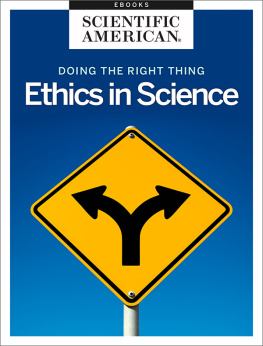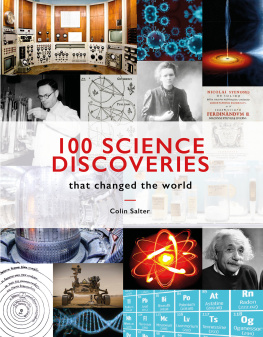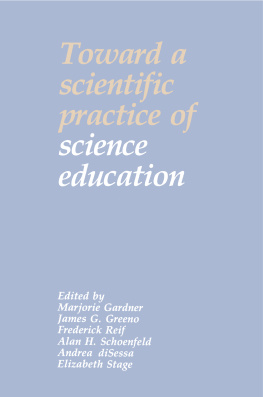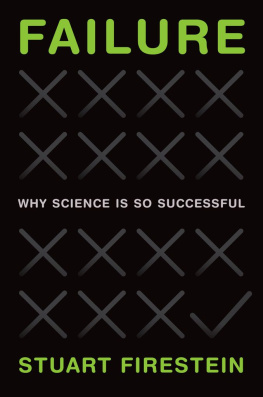SCIENCE UNSHACKLED
SCIENCE UNSHACKLED
How Obscure, Abstract, Seemingly Useless Scientific Research Turned Out to Be the Basis for Modern Life
C. RENE JAMES

2014 Johns Hopkins University Press
All rights reserved. Published 2014
Printed in the United States of America on acid-free paper
9 8 7 6 5 4 3 2 1
Johns Hopkins University Press
2715 North Charles Street
Baltimore, Maryland 21218-4363
www.press.jhu.edu
Library of Congress Cataloging-in-Publication Data
James, C. Rene, author.
Science unshackled : how obscure, abstract, seemingly useless scientific research turned out to be the basis for modern life / by C. Rene James.
pages cm
Includes bibliographical references and index.
ISBN 978-1-4214-1500-0 (hardcover : alk. paper)
ISBN 1-4214-1500-3 (hardcover : alk. paper)
ISBN 978-1-4214-1501-7 (electronic) ISBN 978-1-4214-1501-1 (electronic) 1. ScienceMiscellanea. 2. ResearchMiscellanea. I. Title.
Q173.J34 2014
507.2dc23 2014006747
A catalog record for this book is available from the British Library.
Special discounts are available for bulk purchases of this book. For more information, please contact Special Sales at 410-516-6936 or .
Johns Hopkins University Press uses environmentally friendly book materials, including recycled text paper that is composed of at least 30 percent post-consumer waste, whenever possible.
For my amazing children
Sean, Megan, and Jamie,
who have taken me on countless unexpected random walks
of discovery
CONTENTS
PREFACE
The ideas in this book started to gel during the first full week of July 2011. It was during this week that I watched the last launch of NASAs Space Shuttle program. Unfortunately I saw it from nearly a thousand miles away, after having told myself for 30 years that I would get to Florida to see a shuttle launch someday. Tears filled my eyes on that summer morning when I realized that all those somedays had come and gone.
That same week I also watched what appeared to be the end of the James Webb Space Telescope, the new and improved successor to the Hubble Space Telescope. Having gone billions of dollars over budget and several years behind schedule, the JWST was declared by the United States Congress to be a pointless money pit, making it an easy target during the worst economic period since the Great Depression. Without warning, Congress announced that the entire project was canceled. Baffled, I wondered why our elected officials, who were supposed to represent the viewpoints and priorities of their constituents, would cancel a project that had already been deemed important enough to construct.
Naturally, the community of astronomers was floored. Within hours, the largest professional astronomer society on the planet, the American Astronomical Society, had issued a strong statement against cutting the JWST program. They pointed out (rightly) that billions had already been spent, that cost overruns and unforeseen delays come with the territory of developing cutting-edge technology (indeed that delays necessarily create cost overruns), and that the telescope has the potential to revolutionize astronomy more than Hubble did.
This is a bold claim. Audacious, even. JWST could outdo Hubble? Most assuredly, claims Senator Barbara Mikulski, the chair of the Senate Appropriations Committee that funds NASA. Going from the Hubble Space Telescope to the James Webb Space Telescope is like going from a biplane to the jet engine, she stated at a 2014 press conference about progress on the new telescope.
Besting the Hubble Space Telescope is no small matter. As pointed out dramatically in David Gayness moving 2012 documentary Saving Hubble, the Hubble Space Telescope is one of the few scientific instruments that the general public can identify by name, its moniker and stunning images trickling quietly into popular culture for more than two decades. Over a third of the population has never known life without a visible-light telescope in space.
As for the JWST, the astronomy community was in complete agreement with Congress that we should naturally address any mismanagement of JWST, just as we should with any publicly funded project. But please let the telescope see first light. Let future generations experience the awe that Hubble has brought to this one. Fortunately, the combined professional and public outcry seemed to change the minds of the lawmakers, who restored funding by the end of 2011 but left plenty of uncertainty in the telescopes ultimate fate.
As life changing as that week was for me and other astronomy aficionados, however, not everyone was so moved. Beneath an Internet news story on the Space Shuttles swan song was a stunningly bitter comment: What do they plan on accomplishing? Can they cure cancer up there?
The tone was even uglier for the JWST: Stop wasting money on these toys, they effectively said. And make those brainy astronomers work on real-life problems staring them in the face rather than devote time and energy and money staring at some impossibly distant galaxy. As if that werent discouraging enough, NASAs next mission spawned another litany of negative comments. Despite the successful and awe-inspiring landing of the Mars Curiosity rover during the summer of 2012, many felt it was more money wasted on pointless science research.
Every time I saw these sentiments, my brain rebelled. Surely everyone realizes how important science is!
Then my brain quietly and tentatively added, Dont they?
Clearly not. Too many people seem not to realize that individual research projects are usually just a pixel in a much larger picture. What has become painfully clear from those comments is that too few people seem to appreciate that those apparently pointless, small research projects can sometimes become the surprising life changers, just as the frumpy-looking underdog in a talent contest can bring down the house.
Hence the creation of this book, which presents the sometimes messy histories behind research projects that have had awesome unintended benefits. Although Im a professional astronomer, I knew right away that my net had to be cast as widely as possible. Beyond JWST. Beyond astronomy. Science as a whole is under the suspicious eye of the societal microscope, and it was time to try to do something about it.
But with committee meetings and proposal deadlines and classes and a family, I let the book slide into second, then third, then fourth place, then nth place in my priorities. It progressed in fits and starts, chugging slowly along much like the JWST: it was being worked on, but it was merely creeping closer to launch. Comments I read posted beneath science news articles remained as jaded as ever, and I watched and cheered as other people valiantly took up the mantle to fight for pure science research while I prepared a committee report.
Then one dayApril 23, 2013, to be exactI read that Congressman Lamar Smith from my home state of Texas had urged the National Science Foundation to require grant applications to explain how proposed research will directly benefit the American people. While not an entirely new requirement (scientists have long had to provide a statement of broader impacts), it seemed to galvanize my resolve, and I wondered, How would a proposal to do a radio-telescope search for exploding black holes fare in todays climate?
I was pretty sure I knew the answer to that one. I also knew that if I wanted to try to show that society has misplaced its priorities, it was time to reprioritize my own life and put the book back at the top of the list. It was time to demonstrate that allowing (and publicly funding) scientists to explore the natural universe simply for the sake of satisfying their curiosity has improved our lives immeasurably.
Next page






